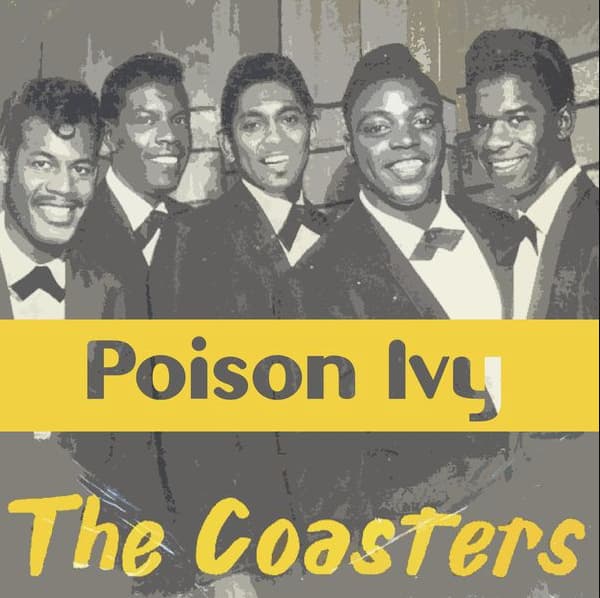
The Coasters – Poison Ivy: A Nostalgic Journey Through Love’s Trials
In the autumn of 1959, when the airwaves were abuzz with rock and roll’s infectious energy, The Coasters released a track that would become an indelible part of the era’s musical tapestry. “Poison Ivy” emerged as a standout single, capturing hearts and climbing to impressive heights on the charts, securing a spot at number 7 on the Billboard Hot 100. This song, with its catchy rhythm and clever lyrics, remains a timeless piece that resonates deeply with those who lived through the vibrant years of early rock and roll.
“Poison Ivy” is not merely a tune about the trials of love; it’s a vivid metaphorical tale woven by the legendary songwriting duo Jerry Leiber and Mike Stoller. Known for their knack for storytelling through music, Leiber and Stoller crafted a song that speaks volumes beneath its playful surface. The track cleverly uses “Poison Ivy,” not just as a plant that irritates but as an allegory for relationships that can be equally discomforting and troublesome. In doing so, it paints a picture of love’s unpredictable nature — beautiful yet perilous.
The Coasters’ performance imbues the song with an infectious charm. Their harmonious vocals glide effortlessly over the upbeat melody, making it impossible not to tap one’s feet along. The vocal delivery is both playful and earnest, encapsulating the essence of youthful romance — full of excitement, yet fraught with potential pitfalls. It’s this duality that gives “Poison Ivy” its enduring appeal.
Behind the upbeat tune lies a deeper commentary on human relationships. The song suggests that just like ivy, which might seem harmless at first glance but causes irritation upon contact, some relationships can be deceptively challenging. This metaphor resonated with audiences in the late ’50s, reflecting societal attitudes towards love and courtship during that era. For many listeners, especially those who experienced their formative years during this time, “Poison Ivy” evokes memories of youthful innocence and the bittersweet lessons learned in love’s embrace.
In terms of cultural impact, “Poison Ivy” holds a significant place in music history. It is one of those songs that epitomizes the sound and spirit of its time — a testament to the creative genius of its composers and performers. For older generations who witnessed rock and roll’s golden age firsthand, revisiting The Coasters’ hit is like flipping through an old photo album filled with cherished memories.
Listening to “Poison Ivy” today is akin to taking a stroll down memory lane. It’s a reminder of simpler times when music was a communal experience shared through jukeboxes and radio waves. For those who danced to its beat in their youth or heard it playing on their parents’ record player, this song stirs up nostalgia that’s both sweet and reflective.
In conclusion, The Coasters’ “Poison Ivy” is more than just a song; it’s a cultural artifact from an era defined by innovation and youthful exuberance. It captures the essence of love’s complexities in an era where music was beginning to explore such themes with newfound freedom. Whether you’re revisiting it after decades or discovering it anew, its charm remains undiminished — a testament to its creators’ ability to craft music that transcends time.